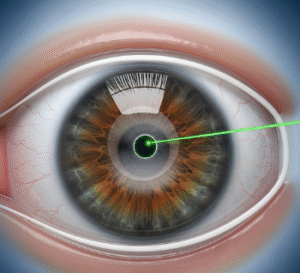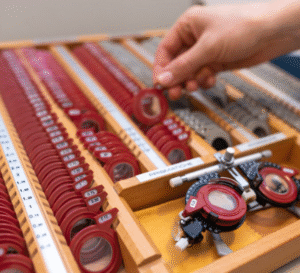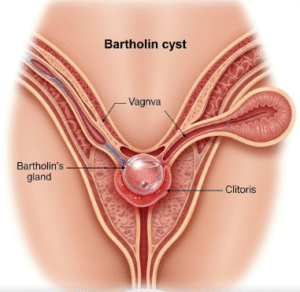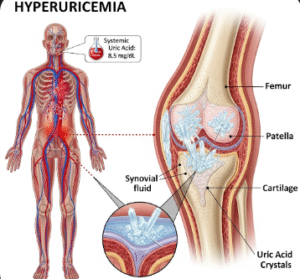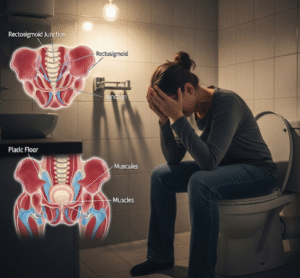Overview
Hemispherectomy is a rare, highly specialized neurosurgical procedure in which one cerebral hemisphere of the brain is partially or completely removed or functionally disconnected. It is primarily performed in patients with severe, drug-resistant epilepsy originating from one hemisphere, as well as in certain cases of brain malformations or traumatic injury.
South Korea is recognized for world-class neurosurgical expertise, advanced operating technologies, and comprehensive post-operative rehabilitation, making it a top destination for patients requiring hemispherectomy with the goal of seizure control and improved quality of life.
What is Hemispherectomy?
Hemispherectomy involves:
- Surgical removal or functional disconnection of one hemisphere of the brain
- Preservation of vital brain functions by targeting only the affected hemisphere
- Performed mainly to control intractable seizures that do not respond to medication
- Advanced imaging and mapping techniques are used to plan the surgery and minimize risk
Indications include:
- Severe, drug-resistant epilepsy localized to one hemisphere
- Congenital brain malformations such as hemimegalencephaly
- Rasmussen’s encephalitis (progressive neurological disorder)
- Strokes or trauma confined to one hemisphere causing epilepsy
What are the Benefits?
- Significant reduction or elimination of seizures in most patients
- Improved quality of life → Reduced risk of seizure-related injuries, better sleep, and cognitive improvement
- Enhanced developmental outcomes in children with epilepsy
- Minimally invasive approaches available for selected cases to reduce recovery time
- Access to advanced neuro-monitoring and rehabilitation in Korea
- Multidisciplinary care → Neurosurgeons, neurologists, physical and occupational therapists
Procedure Details
1) How should I prepare for Hemispherectomy?
- Preoperative evaluation → Brain MRI, EEG, functional imaging, and neuropsychological assessment
- Medication adjustment → Anti-epileptic drugs may need to be optimized
- Fasting → Typically 8–12 hours before surgery
- Consultation → Discuss type of hemispherectomy (anatomic vs functional), risks, expected outcomes, and rehabilitation plan
- Psychological preparation → Counseling for patient and family regarding post-surgery lifestyle and functional expectations
2) What happens during the procedure Hemispherectomy?
- Anesthesia → General anesthesia with continuous neuromonitoring
- Surgical steps →
- Skull opening (craniotomy) to access the affected hemisphere
- Diseased hemisphere either partially removed (anatomic) or functionally disconnected (functional hemispherectomy)
- Meticulous preservation of major blood vessels and surrounding healthy tissue
- Closure of skull and scalp with drains if needed
- Duration → 6–12 hours depending on complexity
- Monitoring → Continuous monitoring of brain activity, vital signs, and neurological function
3) What happens after Hemispherectomy?
- Recovery in ICU → Close monitoring for brain swelling, bleeding, or neurological complications
- Hospital stay → Typically 2–4 weeks depending on procedure and patient recovery
- Rehabilitation → Intensive physical, occupational, and speech therapy to maximize function
- Medication → Anti-epileptic drugs may continue initially and taper over time if seizures are controlled
- Follow-up visits → Regular EEG, MRI, and neurological assessments
Risks / Benefits
Risks
- ➤ Infection or bleeding in the brain
- ➤ Stroke or injury to surrounding brain tissue
- ➤ Temporary or permanent weakness or paralysis on the side opposite the surgery
- ➤ Cognitive or sensory changes depending on the hemisphere involved
- ➤ Seizures may persist in some patients
- ➤ Complications related to general anesthesia
Benefits
- ➤ Significant reduction or elimination of seizures
- ➤ Improved quality of life and safety
- ➤ Enhanced developmental and cognitive outcomes in children
- ➤ Access to advanced neurosurgical care and rehabilitation in Korea
- ➤ Multidisciplinary support for long-term recovery
Recovery and Outlook
- Immediate recovery → Monitoring in ICU for 24–72 hours; manage swelling, pain, and neurological status
- Hospital stay → 2–4 weeks depending on recovery and rehabilitation needs
- Rehabilitation → Physical, occupational, and speech therapy for weeks to months to regain independence
- Return to normal activity → Gradual, based on patient age and functional recovery
- Long-term outlook → Most patients achieve significant seizure reduction, improved mobility, and enhanced daily functioning
- Follow-up care → Lifelong monitoring of neurological function and seizure control
South Korea provides comprehensive post-operative care, including intensive rehabilitation programs, neuropsychological support, and advanced imaging, ensuring optimal functional outcomes and quality of life.
When To Call the Doctor
Contact your neurosurgical team immediately if you notice:
- ⚠️ Sudden severe headache or neurological changes
- ⚠️ Persistent vomiting or signs of increased intracranial pressure
- ⚠️ Fever, chills, or signs of infection
- ⚠️ Weakness, numbness, or loss of function on the opposite side of the surgery
- ⚠️ Seizures that are more frequent or severe than before
Best Korea Option / Process
South Korea is a leading destination for Hemispherectomy due to:
- World-class pediatric and adult neurosurgeons specializing in epilepsy surgery
- Advanced intraoperative monitoring and minimally invasive techniques
- Comprehensive post-operative care including rehabilitation, therapy, and neuropsychological support
- High success rates in seizure reduction and functional outcomes
- International patient support, including hospital coordination, language assistance, and follow-up care
Top Hospitals for Hemispherectomy in Korea:
- Severance Hospital, Yonsei University – Expertise in pediatric and adult epilepsy surgery
- Asan Medical Center, Seoul – Advanced functional and anatomic hemispherectomy techniques
- Samsung Medical Center – Multidisciplinary care with comprehensive rehabilitation
- Seoul National University Hospital (SNUH) – Cutting-edge neuro-monitoring and post-operative support
👉 For patients with severe, drug-resistant epilepsy or unilateral brain disorders, Hemispherectomy in Korea offers advanced surgical care, comprehensive rehabilitation, and a high likelihood of seizure reduction and improved quality of life.



